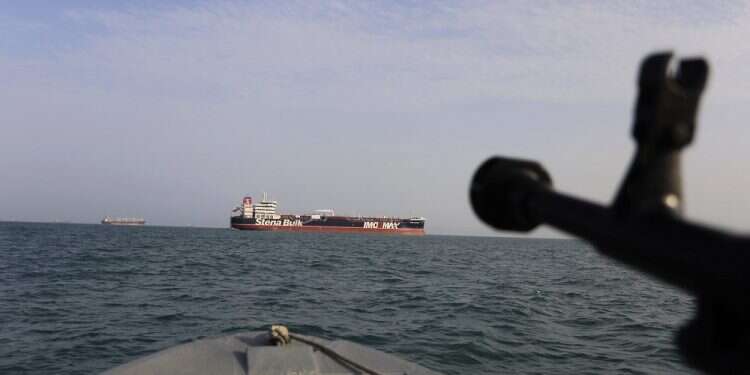The Kuwait Ports Authority manager said on Wednesday that there is coordination between Gulf and Arab countries to secure the safety of maritime traffic in the Persian Gulf waters, state news agency KUNA reported.
Sheikh Yousef Abdullah al-Nasser al-Sabah also said the impact of the latest developments in the Gulf region, after Iran seized a British-flagged tanker, was "slight on Kuwaiti ports traffic". He added that there are "alternative plans for any developments in the region," KUNA quoted him as saying.
Follow Israel Hayom on Facebook and Twitter
Meanwhile, the United States believes a proposed European initiative to bolster maritime security in the Gulf would complement ongoing US efforts there instead of being a "stand-alone" operation, the top US general said on Wednesday.
Washington in June first proposed some sort of multinational effort open to all allies and partners to bolster maritime security in the Gulf after accusing Iran of attacking oil tankers around the Strait of Hormuz, a critical maritime chokepoint between Iran and Oman.
Britain called this week for a European-led naval mission to ensure safe shipping through the strait after Iran seized a British-flagged tanker, raising questions about whether the US initiative would move ahead separately.
Asked about the British proposal, US Marine General Joseph Dunford, chairman of the Joint Chiefs of Staff, said his discussions "right now wouldn't indicate that that's a stand-alone effort that's separate from ours."
"I view that as a European contribution to maritime security that would be complementary, if not integrated, with what the United States is doing," Dunford told a small group of reporters traveling with him in Afghanistan. He did not say whether he had discussed the matter directly with Britain.
Dunford said the US military's Central Command, which is headquartered in Tampa, Florida, would host a "force generation conference" on Thursday on the US initiative. Such events usually aim to see what kinds of military assets partner nations might be able to contribute.
In Washington, Defense Secretary Mark Esper echoed Dunford's comments, saying the European initiative was "complementary" and that there would be coordination.
"I think it's all helpful," Esper told reporters. "It's all sending the same messages we're trying to send - that is, freedom of navigation and no provocative acts in the strait."
Washington's major European allies have distanced themselves from President Donald Trump's Iran strategy and opposed his decision last year to abandon an international agreement that gave Iran access to trade in return for accepting curbs on its nuclear program.
Reuters reported on Tuesday that the British proposal for a European-led initiative had won some support in European capitals and quoted one diplomat saying it was easier to rally around the British proposal than the American one.




